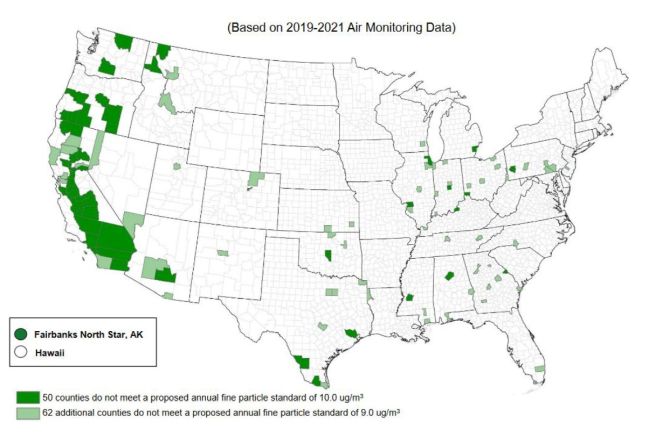On February 7, 2024, the U.S. Environmental Protection Agency (EPA) issued a final rule to lower the primary National Ambient Air Quality Standard (NAAQS) for fine/inhalable particulate matter (PM2.5). These standards will take effect 60 days after the final rule is published in the Federal Register. EPA's final rule lowers the primary annual NAAQS PM2.5 emission standard from 12 micrograms per cubic meter (µg/m3) to 9 µg/m. The changes have potentially sweeping implications. The new standards could result in many areas of the country being designated as nonattainment, triggering significant new costs and control requirements for facilities with air permits located in those new nonattainment areas.

Based on the newly finalized standards, many areas that complied with the prior standard will not be in attainment with the revised primary annual PM2.5 NAAQS. States have until February 7, 2025, to identify nonattainment areas, and EPA will designate these areas as nonattainment within a year of that date. Until nonattainment designation occurs, proposed new major sources and major modifications located in any area currently designated attainment or unclassifiable for all preexisting PM2.5 NAAQS will continue to be subject to the Prevention of Significant Deterioration (PSD) program requirements for PM2.5 but will need to model compliance with revised lower standard. After EPA finalizes nonattainment designations, additional requirements such as emissions offsets will apply under the nonattainment new source review program for purposes of major construction permits in those areas. Companies operating existing facilities, planning to build new facilities, or significantly modify existing facilities in newly designated nonattainment areas will want to examine current emissions technology and plan accordingly.
The final rule also finalizes revisions to other related requirements such as monitoring requirements and the Air Quality Index for PM2.5. The final rule does not change the (1) primary and secondary (welfare-based) 24-hour PM2.5 standards, (2) secondary annual PM2.5 standard, or (3) primary and secondary PM10 standards.
The content of this article is intended to provide a general guide to the subject matter. Specialist advice should be sought about your specific circumstances.



